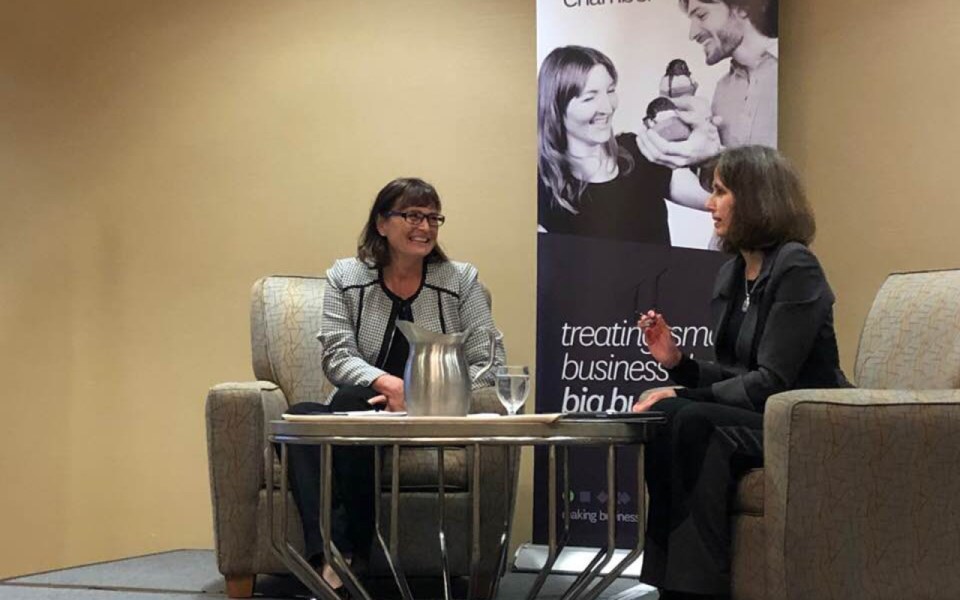As travellers around the world increasingly move to online booking platforms, the way tourism destinations market themselves has undergone a transformational shift, with highly personalized, targeted messaging replacing more traditional forms of advertising.
"The world of travel and travel marketing has really changed a lot, even in the five years I've been in this role," said Destination BC CEO and president Marsha Walden, addressing a Whistler Chamber of Commerce luncheon last month. "So it's really important that we, as an industry and us as a leadership organization in the industry are superb in how we leverage digital platforms, how we create compelling content that really motivates visitation, and how we share what we know and what tools we have with the rest of the industry."

Destination Marketing Organizations (DMO) strive to personalize their marketing in order to gauge a potential visitor's "indicators of intent" and target advertising accordingly, explained Helena Cox, senior manager of content marketing and partnerships for Tourism Whistler (TW).
"Ultimately what we're trying to achieve is showing consumers the right content at the right time that really aligns with their interests and the state that they're at in their trip planning," she said.
If a user is considering a number of destinations online, for instance, TW may show them "a piece of inspirational video content on our website or blog that showcases the beauty of Whistler," Cox said. But if a consumer has already booked their Whistler vacation, TW may instead target them with a blog about how to plan or pack for their trip.
"We're really talking about ... a digital footprint," said Kim Hume, TW's senior manager of data marketing and creative services. "We do a lot of remarketing that we have a lot of success with. So that's based on maybe someone that's either read a blog post, opened our email and clicked, or watched one of our videos. Based on that, we can then serve them an appropriate next course of action."
But it's not just TW content that the DMO can glean insights from. Increasingly, B.C. tourism organizations are "focused on creating shared technologies, shared platforms, shared content systems, shared expertise and shared data repositories that each of us will be able to leverage," said Walden.
TW, for example, has partnered with Destination BC and Tourism Vancouver on a shared information network called "The Data Hub."
"Through that, we've been able to achieve more economies of scale by leveraging different technology platforms and data-sharing platforms," Hume said.
The troves of data being leveraged also gives DMOs a better sense of broader trends in visitation—although it's far from an exact science, conceded Cox.
"We always talk about how the Holy Grail for us would be to truly be able to attribute the success of a marketing campaign to people physically being on the ground here in Whistler," she noted. "I wouldn't say that we've completely cracked that with technology yet, but there are certainly pieces of technology that are developing and evolving and we're testing to hopefully get us to that point in the end."
Given growing concerns around overtourism, Walden also encouraged tourism providers to think of ways that digital technology can be used to help disperse visitation, citing a Visit London mobile app launched last year that incentivized tourists to explore lesser known parts of the British capital.
Along with promoting slower midweek and shoulder season periods, TW uses its various channels to "showcase responsible tourism and promote conscious travel to Whistler," Cox said. "We're really trying to highlight important key messages to visitors from around the world who might not otherwise know things that are important, such as how to be bear-aware, how to be AdventureSmart, how to be fire-smart—that kind of thing is a real focus for us."



